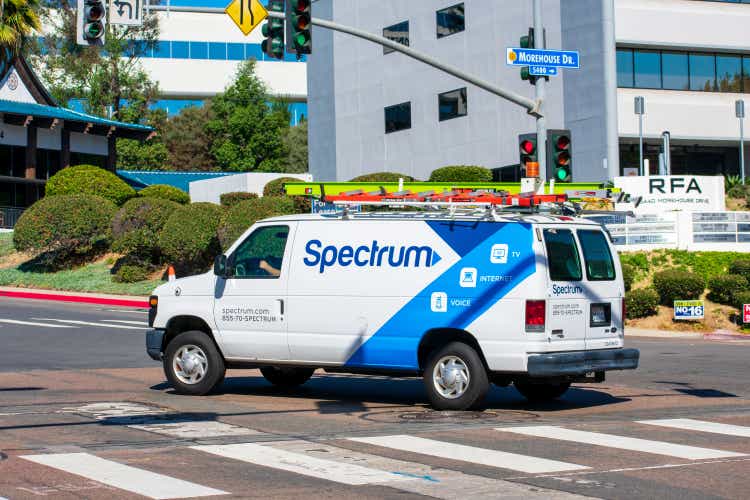Michael Vi
Charter Communications (NASDAQ:CHTR) is 12.4% lower Wednesday as investors process Tuesday evening’s Investor Day, at which the company outlined heavy spending ahead on nationwide network upgrades.
That included details on spending $5.5B in the next three years to perform a three-step upgrade of its entire network, culminating in 10 Gbps downstream service by 2025.
The early part of that spending plan hits 2023 capital expenditure guidance, for $6.5B-$6.8B excluding line extensions.
Wall Street has looked at cablecos with a hard eye over the past year amid cutbacks in growth expectations, and most analyst reaction to the investor day has focused on the impact of expenditures on capital allocation strategy – and sent firms to adjust their financial models.
Bank of America says the moves will support future subscriber growth. “However, it will likely take several years to generate material growth, particularly considering potential offsets from increased competition across much of its existing footprint,” analyst Jessica Reif Ehrlich said.
“In the interim, we expect significantly higher capex to weigh on [free cash flow] and share repurchases, and as such we remain Neutral,” she added. BofA’s price target is $405 – now implying 18% upside after Wednesday’s double-digit drop.
“We believe the network expansion is prudent, as the larger providers such as CHTR need to search for additional growth, and these opportunities are in their wheelhouse, and M&A opportunities are scarce due to DOJ and political challenges,” Raymond James analyst Frank Louthan IV said.
As for the prospects of wireless penetration from Charter’s plans for a converged home Internet/Wi-Fi/mobility platform: “We believe the product has merit, but the real upside is to increase the number of accounts that take the product. Notably, the penetration of customers was even lower than we had previously assumed,” at about 5% of broadband passings. The wireless offering is a “significant improvement to its competitive position” going forward.
Charter (CHTR) is pursuing the right strategy long term with the upgrades, Oppenheimer’s Timothy Horan said, but “it has a major mobile disadvantage, and its overpriced core services are facing disruptive new technologies — OTT (over-the-top offerings), mobile voice, fiber, and [fixed wireless] services.”
“We believe CHTR should look to buy or merge with a wireless company,” he added. Charter currently depends on reselling Verizon’s (VZ) network, and associated “complicated WiFi/CBRS network handoffs that degrade service quality; and VZ has no incentive to improve this.”
Image and article originally from seekingalpha.com. Read the original article here.

